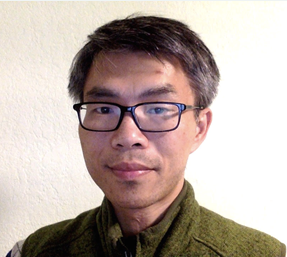
Master Degree Program in
Master of Business Administration in Data Science and Business Administration
The program emphasizes both mastery of subject matter and an understanding of related research and research methodology. This emphasis implies development of the student’s ability to integrate and apply the subject matter
- Students will demonstrate an understanding of business knowledge (principles, concepts, theories, perspectives) and skills (procedures, methods, strategies, approaches) for each business function/discipline, and of the interrelationships among business functions/disciplines.
- Students will demonstrate the capacity to assess business environments and opportunities, and to align business activities in developing and implementing organizational strategy and change in complex and uncertain conditions.
- Students will demonstrate the capacity to identify problems, define objectives, gather and analyze information, evaluate risks and alternatives, make decisions that are ethical and responsible, and to communicate clear, defensible ideas and plans.
- Students will demonstrate the capacity to acquire and manage organizations’ financial capital, human capital, assets, information, and technology.
- Students will demonstrate the capacity to work effectively and communicate with others as a colleague and as a manager.
- Students will demonstrate the capacity to collaborate and communicate effectively with others.
- Students will demonstrate the capacity to manage, influence, and lead others, and facilitate their development.
- Students will demonstrate the capacity to perceive commonalities and differences in others’ values, styles, and perspectives, and how culture affects those commonalities and differences.
- Students will demonstrate the capacity for continual self-managed learning for professional and career development.
Big Data are data sets that are so voluminous and complex that traditional data-processing application software are inadequate to deal with them. In this part, you will learn the big data problems in the real world and many data-processing applications developed in the past fifteen years to address these problems. You will learn the key concepts of big data and distributed systems, and will also have hands-on experiences in using these systems. The following topics will be covered in this part:
- Overview and Review of Structured Query Language (SQL).
- Hadoop and MapReduce—Making of Big Data Processing Applications
- Apache Hive and SQL on Big Data.
- Big Data Storage—HBase and Cassandra.
- Streaming: Real-time Big Data Processing
- Machine Learning on Big Data
- Big Data in Clouds.
A minimum of 30 semester units of graduate study are required for the MBA program. The MBA curriculum includes coursework in the following categories: Core Requirements, Electives, and a Capstone Course.
The student must meet prerequisite requirements when taking any course. Upon clearing background preparation work, students start to take courses to meet the degree requirements, beginning with the Core Requirements courses.
 Andreas Ramos
Andreas Ramos
was the head of Global SEO at Cisco, where he used 40 languages in 84 countries. He has managed global SEO and Google Adwords for Harvard and MIT where he used 300,000 keywords in thirty languages. He currently manages SEO and Google Adwords for Stanford. He was the director of the digital agency at Acxiom where he worked with global corporations. He has founded two digital marketing agencies. He has written fourteen books on digital marketing. One book was published in China by Tsinghua University Press. His books have been translated to six languages. He was the technical editor of the leading book on SEO, which was published by IBM Press. He also teaches digital marketing at INSEEC, a leading French business school.
 Daniel Zanger, Ph.D.
Daniel Zanger, Ph.D.
has over 20 years of experience in both industry and the federal government, working extensively in the fields of theoretical and applied machine learning, data analysis, optimization, statistical database privacy, cryptology, quantum computing, and others. He has applied techniques from these fields to problems in such areas as text mining, image processing, operations research, and multi-sensor fusion. Dr. Zanger has authored numerous publications in refereed journals and conference proceedings in various technical fields including mathematics (partial differential equations), probability theory, information retrieval, statistical learning theory (applied to finance), operations research, and database privacy. He holds a Ph.D. in Mathematics from the Massachusetts Institute of Technology (MIT) as well as a B.A. (with Highest Honors), also in Mathematics, from the University of California at Berkeley.
 Danian Gong
Danian Gong
Currently work at CADENCE Design Systems as Sr. Principle Engineer, responsible for developing high performance microprocessor; also serves as adjunct professor in CSTU, where he teaches Artificial intelligence and deep learning. Study and work Experience: 1996 Graduate from Zhejiang University, Hanzhou,bachelor degree in EE major. 2001 Graduate from Tsinghua University, Beijing, Ph.D and master degree in EE major. 2001-present, R&D management and development in Silicon Valley High Tech companies


